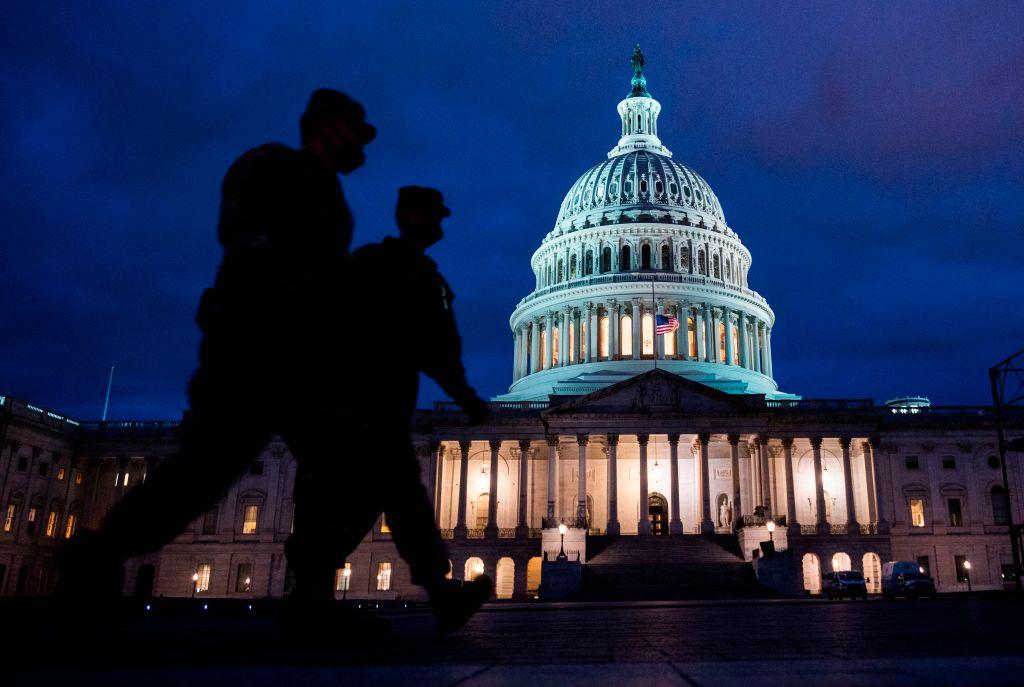
An impeached president departs Washington in disgrace. The peace deal in America’s longest war crumbles and defeat looms.
US politics is polarised. A nation, both angry and agitated, grapples with racial and social divisions.
The superpower rival jeers at America’s agonies, gloating that its system works better.
Other democracies offer sympathy as they debate America’s decline. Aghast at America’s travails, Europe seeks its own way, affirming the different values of the great European project. The old US ally, Britain, takes a historic European leap.
Asia wonders what life might be like without the US hegemon. Australia pledges enduring faith in the US alliance while gazing at Asia, frantically assessing how much American power has ebbed.
These are scenes from history, not today’s headlines—moments watched long ago on a small black-and-white TV.
Behold, 1974: a tough and trying time for the US.
I match those black-and-white analogue memories to today’s vivid, digital colour. Much does repeat in this rhyming history. Or as Mark Twain actually expressed it: ‘History never repeats itself, but the kaleidoscopic combinations of the pictured present often seem to be constructed out of the broken fragments of antique legends.’
In 1974, the disgraced president was Richard Nixon. The longest war was Vietnam. The rival was the Soviet Union. Britain was joining, not leaving, Europe. Australia had interred the White Australia policy and turned towards a new destiny as a multicultural nation that found its security in, not from, Asia.
The then-and-now effort is a way to loosen the grip of living in this extraordinary moment (the tyranny of the present). Other times have been just as extraordinary, and some history reads as a rerun.
One difference is that as a young journalist in 1974 I was far more pessimistic about America’s prospects than today’s greying hack. The US can still amaze on the upside, just as it can appal on the down.
All those decades of gazing as an outsider at the ever-roiling drama that is America teaches a lesson of vigour and resilience and imagination. It’s the not-so-secret sauce that makes democracies powerful: switch a leader and swiftly change course.
Amid turmoil, the US system has just worked its magic, disposing of an incompetent president who governed with a whim of iron, or perhaps a will of irony.
As always, America did the deed in full public view while arguing passionately (other elements of the voters’ recipe). The troubles that beset democracies always contain the seeds of recovery.
The 1974 comparison crashes against Covid-19. The pandemic makes today’s moment feel unique and singularly important (classic tyranny-of-the-present stuff). Yet a touch of ’70s angst flavours the lament that the Covid year was very bad for global democracy.
Afghanistan replaces Vietnam as the longest war. And now there’s another fragile peace deal. Heading for the exit in Afghanistan, the Biden administration is haunted by that image of the last helicopter fleeing the roof of the US embassy in Saigon.
These days China is the rival power crowing about the US as ‘a wheezing superpower in denial about its decline’. President Joe Biden’s language and some of his tactics will be different from Donald Trump’s, but Washington’s new grand strategy is set: to compete, challenge and compel China.
The Cold War analogy is misleading, even unsafe, not least because we know how the last one finished. Fifteen years on from the 1974 low point, the US burst free of the bipolar freeze to bask in the triumph of its ‘unipolar moment’. Reusing the old Cold War label can feed the assumption that the previous script will recur and the US must repeat its triumph.
Be confident about the US while understanding the caution in Twain’s truth: history only rhymes. This is more hot peace than cold war. The US and China are as intertwined as they are opposed.
Xi Jinping’s Davos speech used the ‘cold war’ descriptor three times, including this warning: ‘To build small circles or start a new Cold War, to reject, threaten or intimidate others, to wilfully impose decoupling, supply disruption or sanctions, and to create isolation or estrangement will only push the world into division and even confrontation.’
Xi’s remark about strong states that bully gets a nod of agreement from Canberra. Australia has been talking openly about China as a bully and its potential as an adversary. Our icy age with China is about to enter its fifth year.
Reflecting on that icy experience in his National Press Club speech last week, Prime Minister Scott Morrison offered this judgement on the China relationship: ‘We cannot pretend that things are as they were. The world has changed.’
The PM could have applied the same thought to the US: much has changed; there’s no going back.
As Biden says, the ‘credibility and influence of the United States in the world have diminished’. The new president’s aim for America to lead again confronts multipolar complexity.
Much of the contest in coming decades will be between ‘techno democracies’ and ‘techno autocracies’, the vision offered by the new secretary of state, Antony Blinken, in his confirmation hearing (‘outcompete China’ and ‘revitalize core alliances’).
The democracy element of that equation delivers much. The optimism of rhyming history shows that America has been here before.